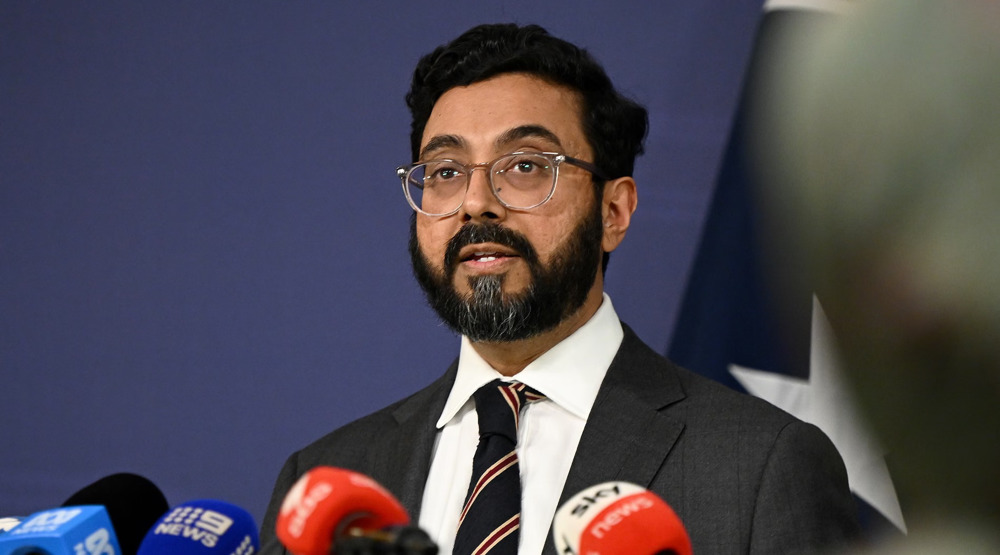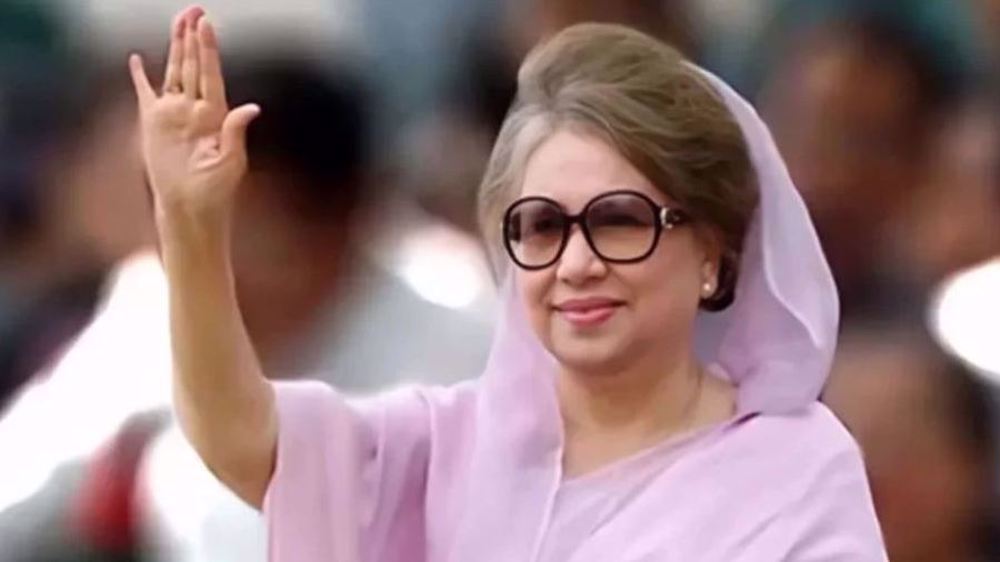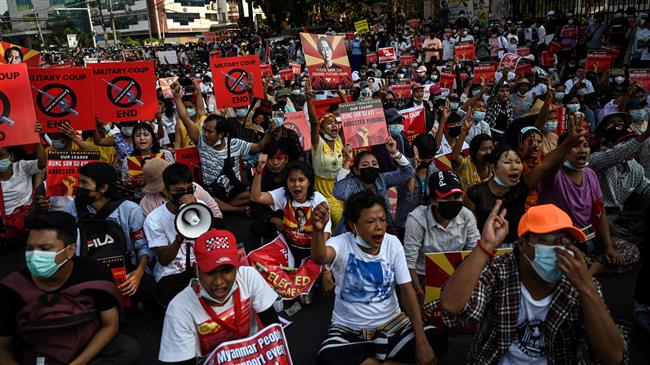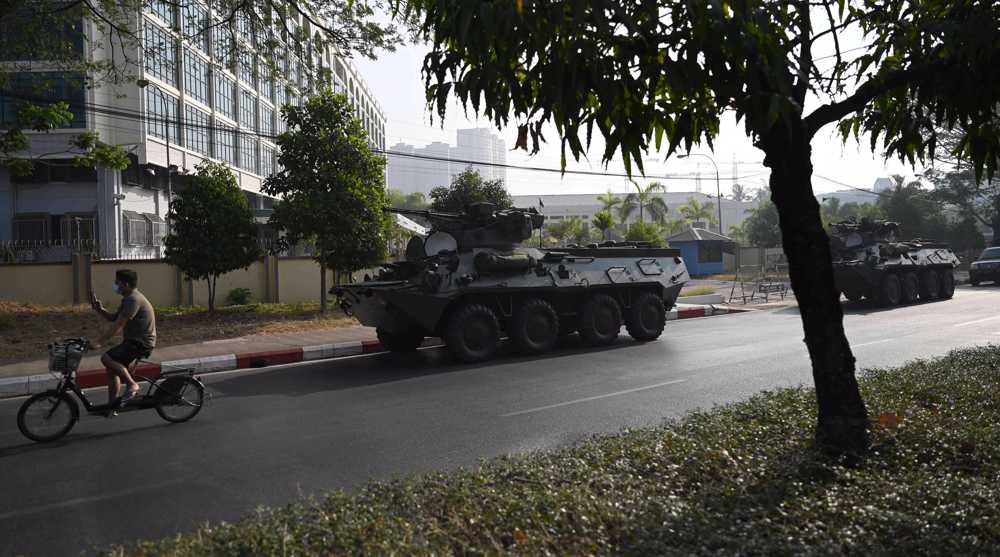Myanmar military denies coup, files extra charge against Suu Kyi
Myanmar’s military has denied that its ouster of the government and arrest of political leaders constituted a coup d'état, justifying that assertion by claiming that it plans to hold a new election and hand power to a civil government.
A spokesman for the junta, General Zaw Min Tun, said at a news conference on Tuesday that the military’s “objective is to hold an election and hand power to the winning party.”
He did not give a date for the elections, though.
The military, which has imposed a state of emergency for one year, ousted the government early this month and arrested de facto leader Aung San Suu Kyi and her top political allies over accusations of voter fraud in favor of her National League for Democracy (NLD) Party in the November 2020 elections.
Police file additional charge against Suu Kyi
Suu Kyi, who has already been charged with importing walkie talkies, is now facing a second charge of violating the country’s Natural Disaster Law, according to her lawyer.
Lawyer Khin Maung Zaw said on Tuesday that Suu Kyi had met with a judge on a video call, but lawyers had not been able to attend because they had not been granted power of attorney.
The date of the next court hearing will be March 1, according to the lawyer.
Protesters block railway lines; UN warns against military crackdown
Meanwhile, anti-coup protests continue across Myanmar, and a United Nations envoy has warned the army of “severe consequences” for any harsh response to the protest rallies.
Protesters on Tuesday blocked train services between the country’s largest city, Yangon, and the southern city of Mawlamyine.
They were holding placards in support of a civil disobedience movement, while calling for the release of Suu Kyi and other detainees.
“Release our leaders immediately,” and “People’s power, give it back,” the crowd chanted.
Protesters also gathered in two locations in Yangon — at a traditional protest site near the main university campus and at the central bank.
This comes as the military deployed armored vehicles and soldiers in some major cities on the weekend.
The military has also stepped up arrests of veteran campaigners, including doctors who have joined the civil disobedience movement against the coup.
Meanwhile, UN Special Envoy Christine Schraner Burgener warned the military that “the world is watching closely, and any form of heavy-handed response is likely to have severe consequences,” according to UN spokesman Farhan Haq.
Haq said that Burgener had met with the deputy head of the junta on Monday.
“Schraner Burgener has reinforced that the right of peaceful assembly must fully be respected and that demonstrators are not subjected to reprisals,” he said.
Singapore warns about ‘alarming developments’ in Myanmar
Singapore’s foreign minister warned about the “alarming developments” in Myanmar on Tuesday, calling for the release of Suu Kyi and other political leaders.
Addressing parliament, Vivian Balakrishnan said he hoped those detained in Myanmar could be released so they could negotiate with the ruling junta.
He also expressed concern about violent clashes at protests, the arrests, internet blackouts, and troop deployments in cities.
“These are alarming developments. We urge the authorities to exercise utmost restraint,” he said. “We hope they will take urgent steps to de-escalate the situation. There should be no violence against unarmed civilians.”
Balakrishnan also said Singapore — a major investor in Myanmar — did not support widespread sanctions on the country, warning that any such sanctions would hurt ordinary people.
“We should not embark on widespread generalized indiscriminate sanctions because the people who will suffer most will be the ordinary people in Myanmar,” Balakrishnan said.
The United States has already imposed targeted sanctions against Myanmar.
Myanmar was ruled by the military until 2011, when Suu Kyi ended the junta rule and introduced what were presented as reforms. She had been under house arrest before.
Her party, however, cultivated close relations with the military from the beginning of its activity and formed an alliance with senior military officers.
She supported the military in a deadly campaign of genocide against the Rohingya Muslim community in the western state of Rakhine.
Suu Kyi also defended military atrocities against the Rohingya people at the UN’s top court in The Hague in December 2019.
Magnetic revolution: Iran’s nano-solutions driving cleaner and greener oil industry
Deadly clashes erupt in Syria’s Aleppo as US-backed SDF forces defy HTS rule
FM Araghchi: Iran’s internal affairs solely matter of its people
Iran army chief: Enemy threats will not go unanswered
Iran: Israeli FM’s visit to Somaliland a ‘dangerous precedent’
Rome protests Maduro abduction by US
Leader of Yemen’s separatists flees ahead of talks in Saudi Arabia
Venezuela to deliver 30-50 million barrels of oil to US: Trump













 This makes it easy to access the Press TV website
This makes it easy to access the Press TV website